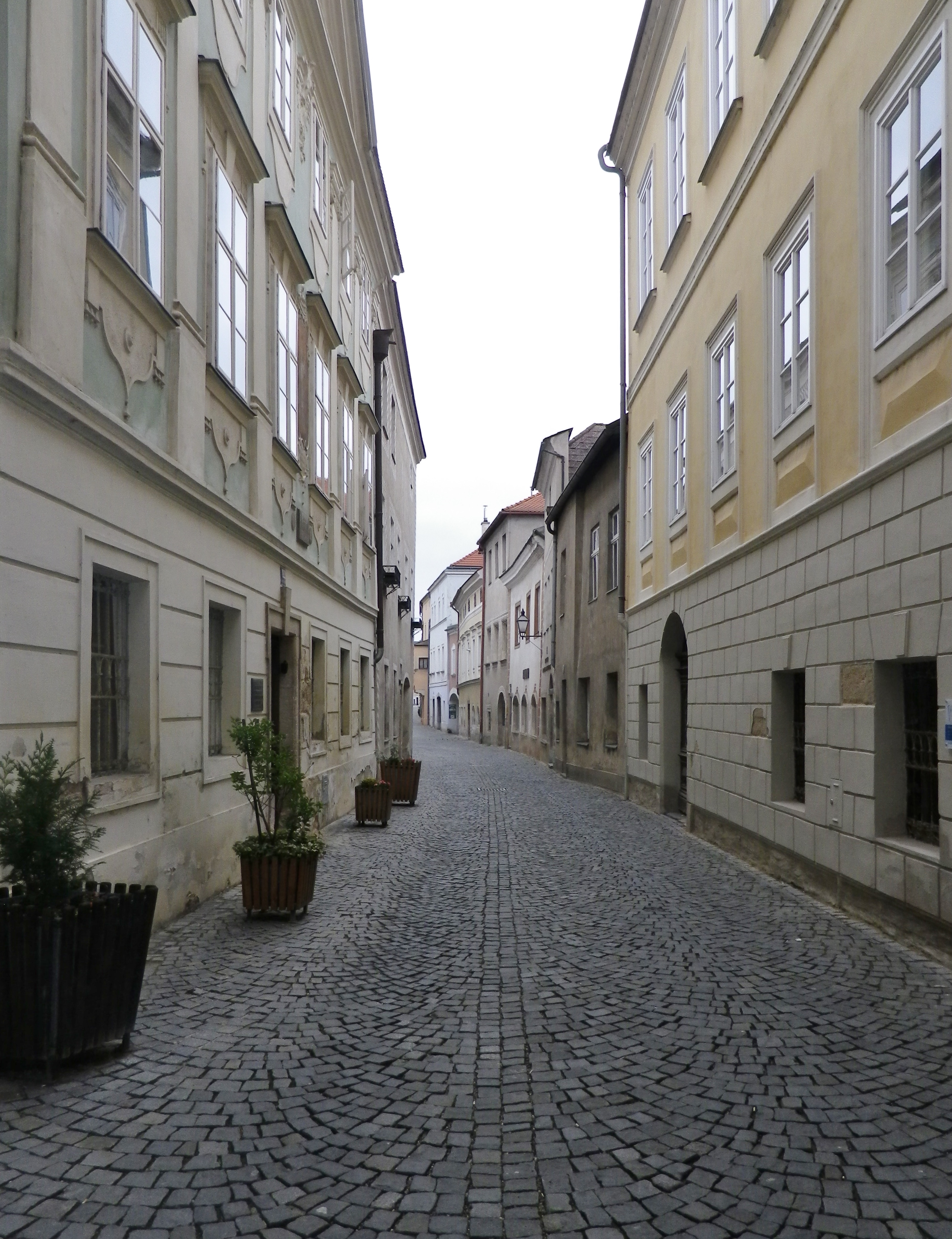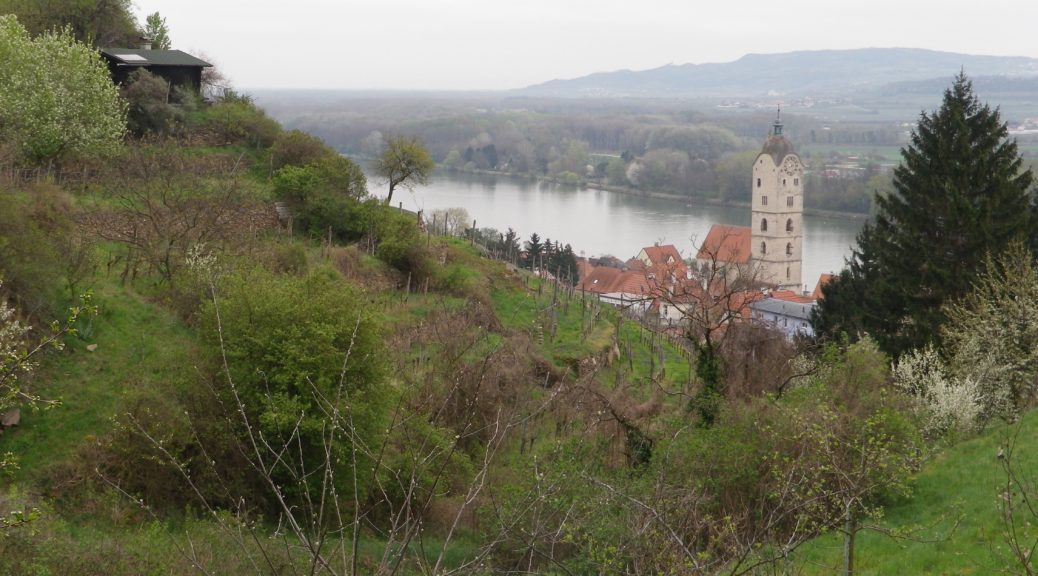Schreckberg, specifically the Steiner Schreck, Hund, Altenburg, and Steiner Pfaffenberg are four named vineyards along the itinerary on this hike above the town of Stein an der Donau, Austria. The Krems River is a major tributary to the Danube. The Kremstal wine region has Krems, on the Krems River and the Danube, as its main city. Krems has the little town of Stein an der Donau attached to it. Although Stein’s vineyards form part of the Kremstal wine region, it is easy to see why some experts believe that this area belongs to the Wachau wine region. Situated along the Danube upriver from Krems, Stein vineyards flow into those of the Wachau by Loiben, at the end of a visually dramatic and historically significant section of the Danube. A hike along this section of the Danube is a fairy tale come true.
This itinerary granted the typical three wishes for an ideal vineyard hike: beautiful natural scenery, charming small towns, and renowned vineyards. On magical moments here and there along the trail, all three lined up for a memorable photo opportunity.
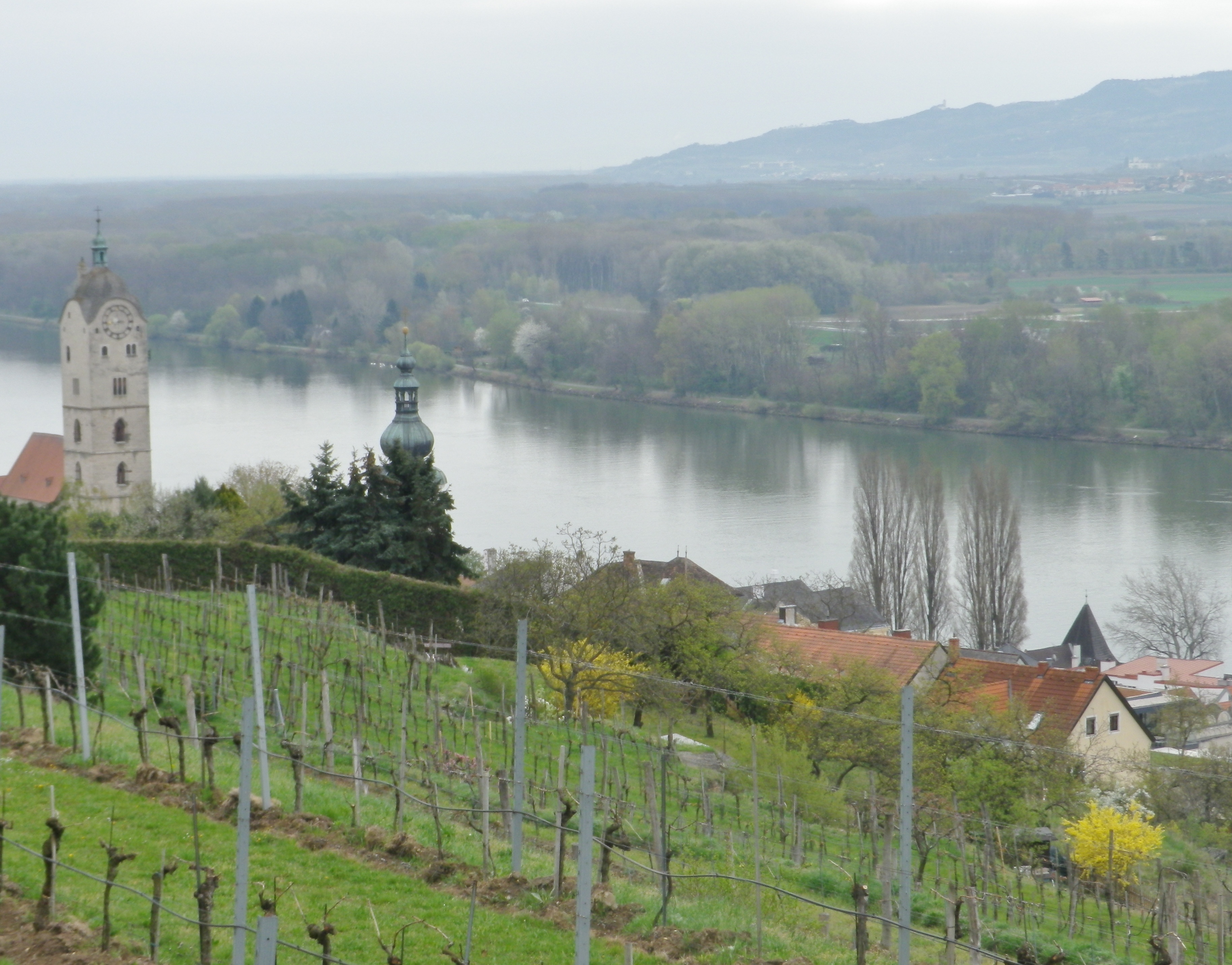
My hike began along the Steiner Kellergasse, or Stein’s “Cellar Lane,” where the vintners had their cellars, and in some cases, still do. This area is just below the vineyards, on the edge of the built-up area of town, and climbs uphill toward the vineyards. Soon I was in them. No doubt Stein is still very much a wine village.
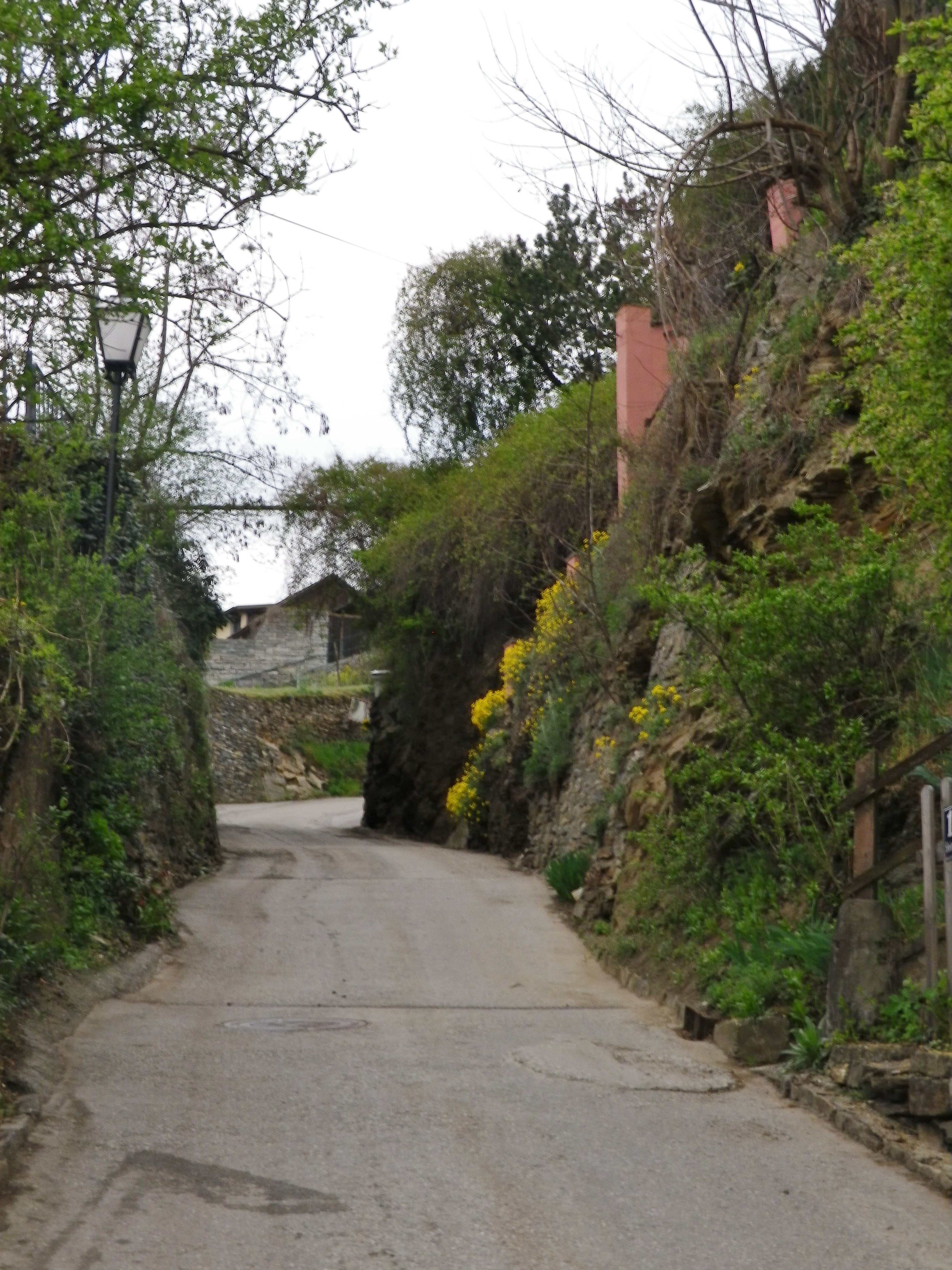
This final section of vines in the Kremstal appellation, has some unique parcels, with unique soils and aspects. The vineyards on the Schreckberg are steep and terraced. Each terrace seems uniquely formed to provide the best aspect for a few rows of vines. From a distance, these look charmingly higgledy piggledy, but up close, they make perfect sense. Deep cuts between parcels expose the subsoils, showing deep sedimentary layers. On finally reaching the top of the Schreckberg, the trail circled around to head back down into town.
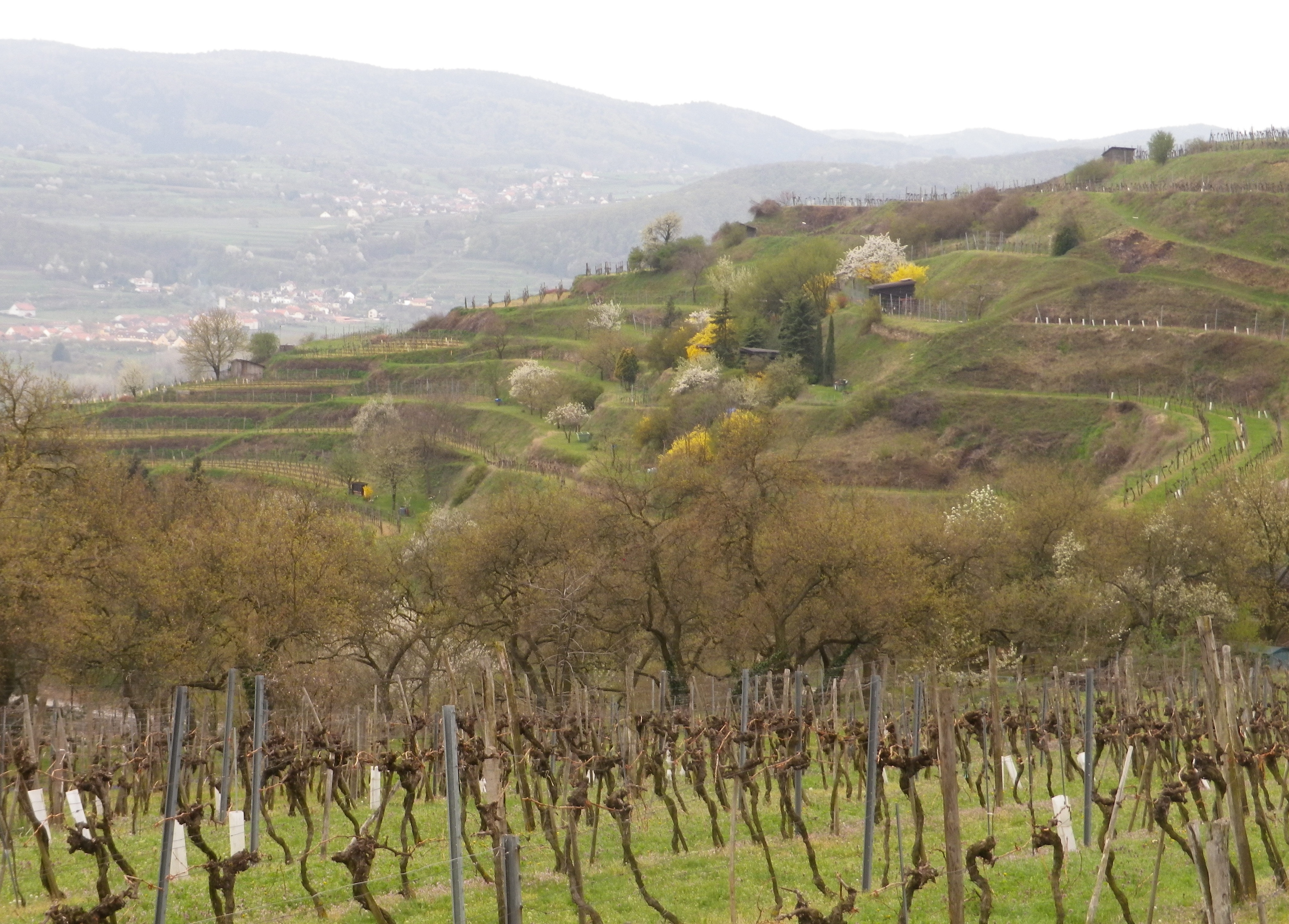
From this perspective, beautiful views of the Danube and the forested hilltops of the right bank. Upriver, the Danube twists and turns through a relatively narrow valley flanked by cliffs, with vineyards on the left bank facing south, and forests of trees (to include apricot trees at lower elevations) on the right. The water flows swiftly and silently along this section. It is difficult to believe that this peaceful spot is only 60 minutes by car or 75 minutes by train from Vienna!
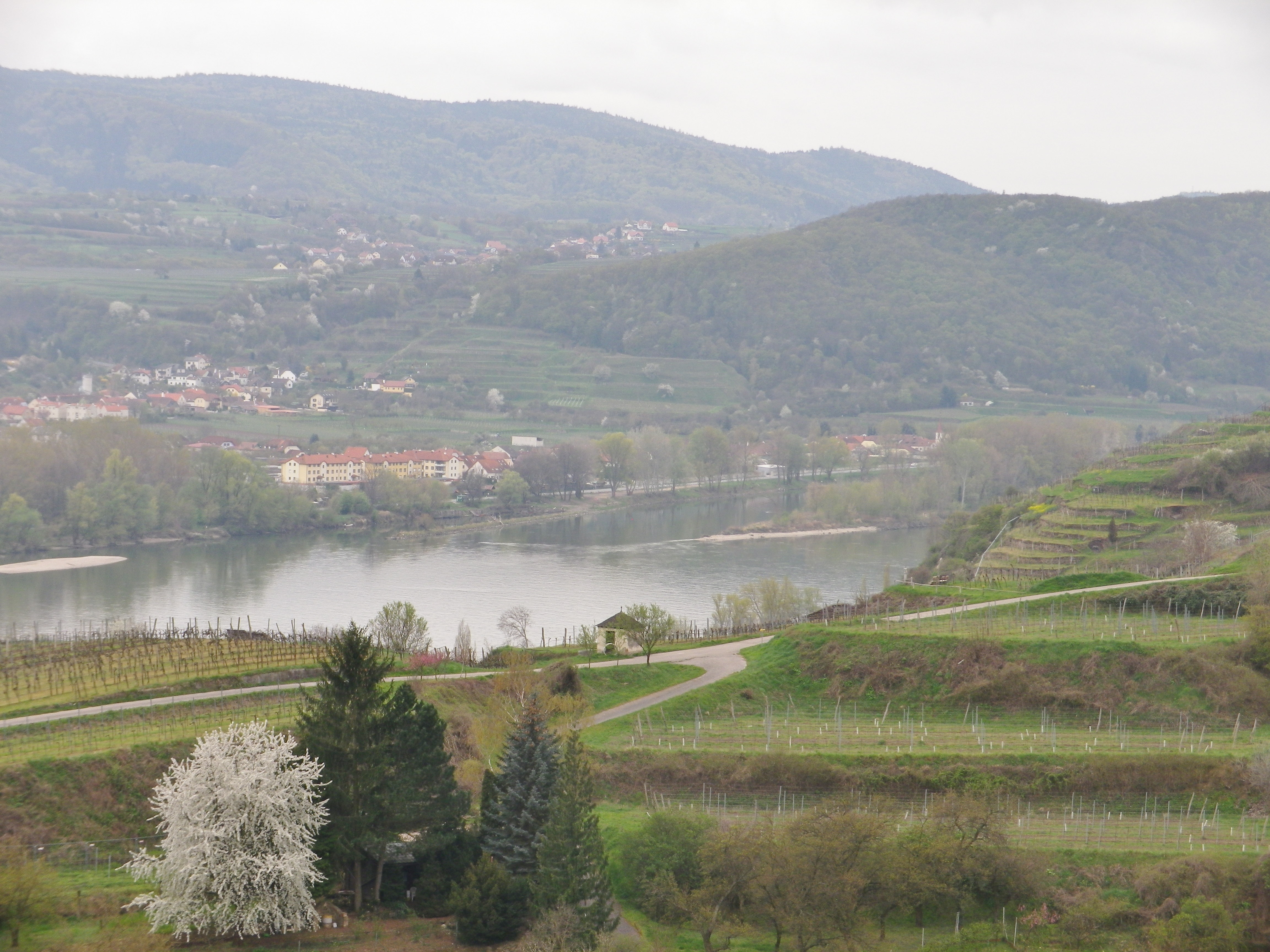
Separated by a road in a deep cut (the Reisperbachtal road), the next part of the hike went up the Steiner Pfaffenberg. It is closer to the Danube, rising seemingly from its narrow bank. Here, after passing the Altenburg ruins, and the Altenburger Weinberg Cross, made in part of vines, the noise and bustle of the town really fades away. The vineyards were quiet, and the terraces looked more regular, not quite as fantastical.
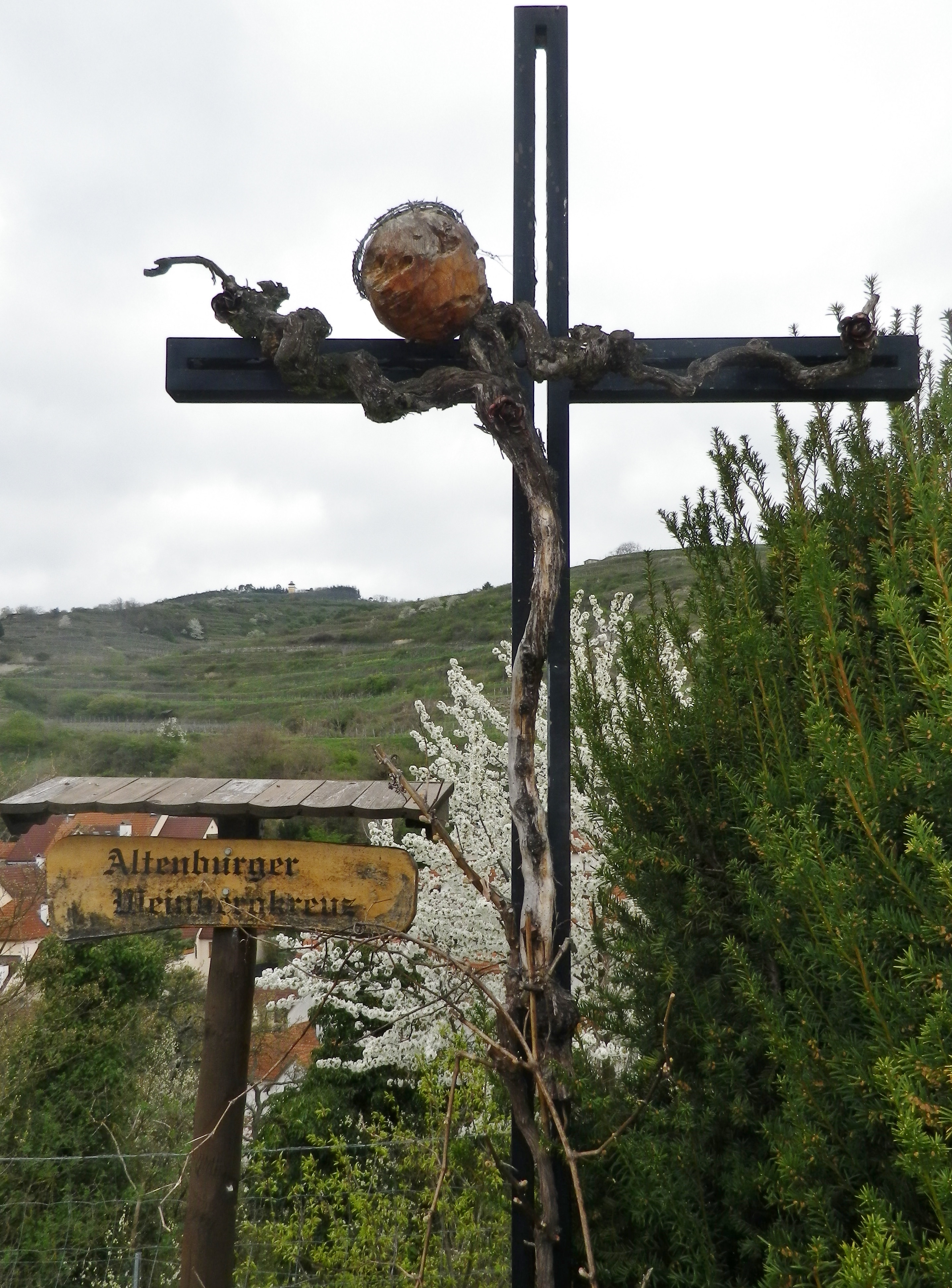
After a woodland interlude, the trail led down to Foerthof, a hamlet by the river with a medieval chapel of note. Following the river downstream, I soon reached Stein, and entered the historical section by an old gate. Nearby were well-maintained pastel-colored houses and shops, many with simple, but elegant Baroque facades. A slight detour led up to the parish church above the Steiner Landstrasse, and a set of stairs from the church yard led back down to it.
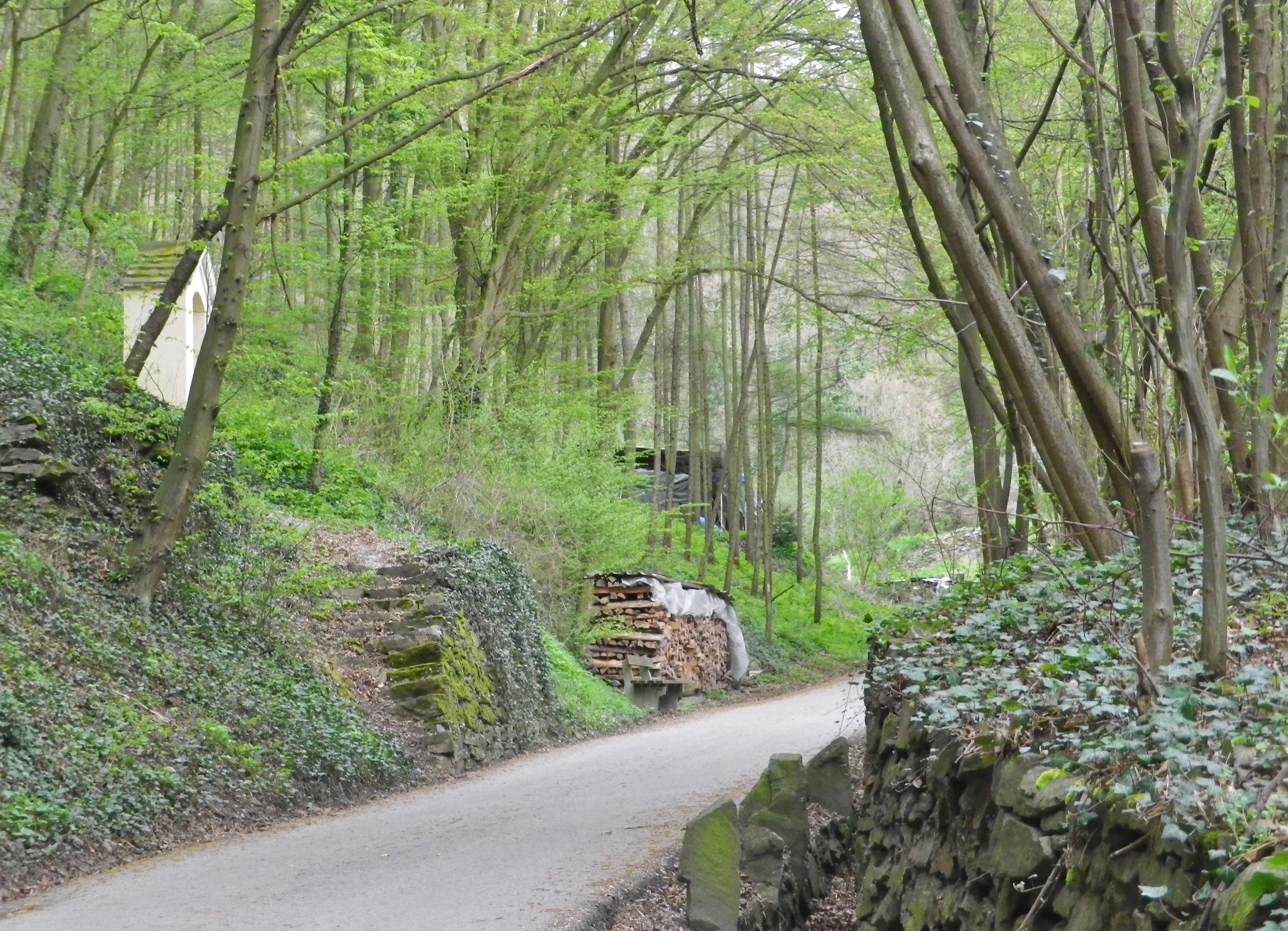
While it was one of the shorter hikes I have ever done, it managed to hit all the highlights of this magical district of Austria, and had the advantage of having great wine, which like an elixir, restores one’s idealistic belief in the myth of wine and eternal well-being!
